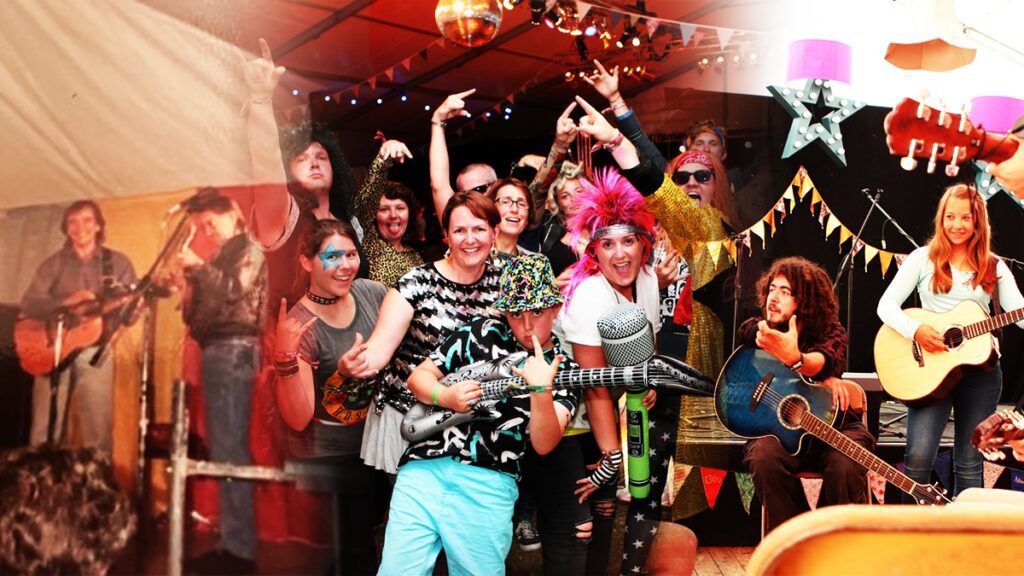Almost exactly 60 years ago, Denis Manners and Louis Rushby wanted to raise some money to replace, among other things, the toilets in the town hall of their English village of Towersey. So, being good community members and music lovers, they decided to organise a small event, part party, part concert. So, thanks to the simple need for indoor plumbing, Towersey Festival was born and would leave a valuable local legacy.
What began as a humble, one-off project quickly grew into an annual festival that would become the setting for six decades of memories. This year marks the 60th anniversary of the Towersey Festival, a remarkable achievement for any event, let alone one as local as this one. The celebration will be bittersweet, however, as 2024 will also serve as one last hurrah. After being an annual home for musicians, comedians, artists and (most importantly) families, the UK's longest-running independent festival is sadly coming to a triumphant end (get tickets here).
And yet, the conclusion of the festival is far from a purely sombre occasion. Sure, it's deeply unfortunate to see an institution beloved by many close its doors (just take a look at its Instagram page (Despite comments made mourning the loss and sharing memories), the legacy of the Towersey Festival remains a shining example of what a community event can achieve.
Its first incarnation, which took place on 30 August 1965 (five years before Glastonbury debuted!), was a celebration of the holiday held in the founders’ garden. Around 100 people gathered to enjoy a bit of fanfare, plenty of music and the feeling of togetherness that would soon become a Towersey trademark – in other words, it was a resounding success, exceeding Manners and Rushby’s wildest expectations. What choice did they have but to keep the party going?
The following year, the event added a third day, attracting more and more attendees and ever bigger stars; later editions would see the likes of Eliza Carthy, Richard Thompson, KT Tunstall, The Proclaimers, Roy Bailey (who became Towersey’s official patron artist in 2006) and more perform. Expansion continued well into the 1970s and beyond, as the Towersey Festival further cemented its identity as a meeting place for people from all walks of life.
Photo courtesy of Towersey Festival
While musical performances typically leaned in a folk direction, the variety of performers and attractions grew and changed as the festival matured. Organized dances, poetry readings, and comedians became a staple of each edition, with programming dedicated to children's activities introduced in 1980 and “Shooting Roots,” with programming specifically for teens and young adults, arriving in 2002. Heck, it even inspired the book Towersey Festival: 50 years in the making and three live albums: 1969's Festival at Towersey, Towersey Festival 2015and Towersey Festival 2016.
Each year brought with it new experiments and improvements, whether expanding to a fourth day or hosting public screenings of cartoons such as Tom and JerrySome experiments, such as the Festival Finale sing-along (with The Beatles' “Hey Jude,” of course), the lantern parade, and Dress Up Sunday, became much-loved annual traditions.
As a wholly independent event, Towersey Festival was able to adapt quickly and adopt aspects that proved successful with its audiences. It was uniquely placed to adapt to unexpected trends and challenges, always putting the best on-site experience for its loyal fans at the forefront.
“We never rest on our laurels. We don't sit back and say, 'Well, this is who we are, so take it or leave it,'” Joe Heap, the festival's current director and Manners' grandson, told the BBC. Festival Perspectives“If we don’t sell enough tickets, we ask ourselves: ‘What are we doing wrong? How can we transition? What is the offer?’ That flexibility has always been there.”
thanks to our partners at consequence.net
